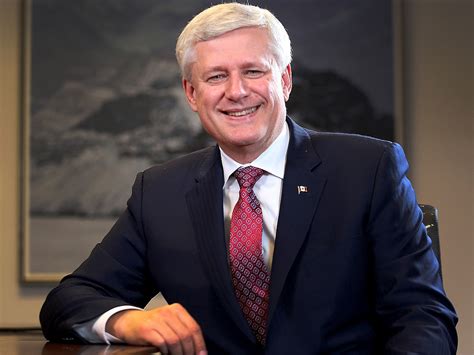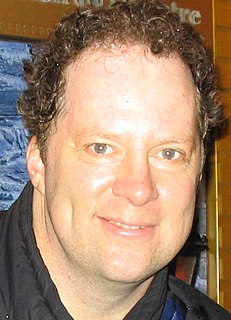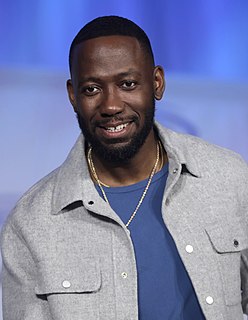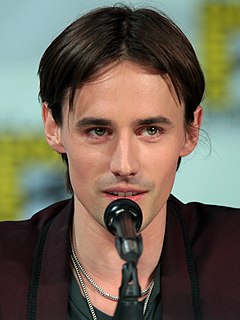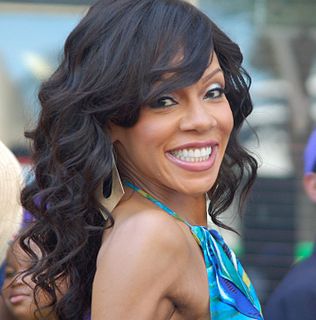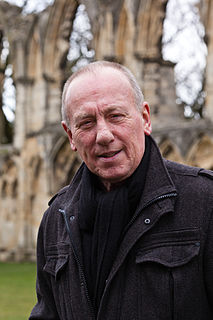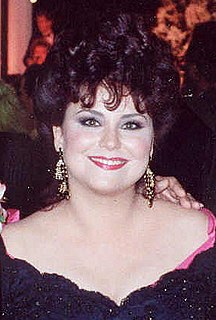A Quote by Steven C. Harper
I've always loved theatre because it's so immediate. The challenge of it is that, career wise, it's easier to get traction in the industry if you do film and TV because the audience is larger, and because the work can be seen for a longer period of time. I did solid work in a series of regional and Off-Broadway shows, but the work I did on TV or film will have a longer life with a larger audience (and with services like Netflix). Ultimately, there's something intimate about TV, because the storytelling and the actors come home with the viewer. It can be powerful because of that.
Quote Topics
About
Actors
Always
And Off
Audience
Because
Broadway
Broadway Shows
Career
Challenge
Come
Did
Easier
Film
Get
Home
Immediate
Industry
Intimate
Larger
Life
Like
Longer
Longer Life
Loved
Netflix
Off
Period
Powerful
Regional
Seen
Series
Services
Shows
Solid
Something
Storytelling
Theatre
Time
Traction
TV
Ultimately
Viewer
Will
Wise
Work
Related Quotes
If you're watching a film on your television, is it no longer a film because you're not watching it in a theatre? If you watch a TV show on your iPad, is it no longer a TV show? The device and the length are irrelevant; the labels are useless, except perhaps to agents and managers and lawyers, who use these labels to conduct business deals.
Films for TV have to be much closer to the book, mainly because the objective with a TV movie that translates literature is to get the audience, after seeing this version, to pick up the book and read it themselves. My attitude is that TV can never really be any form of art, because it serves audience expectations.
TV becomes easier because you get to spend time with that character. It's going to go on for a while, and the more you know something, the easier it becomes, the less nerves you have about it, and the better it is for improv because you have that camaraderie between cast regulars. In film, it's harder because you got to get in and get out.
TV acting is so extremely intimate, because of the peculiar involvement of the viewer with the completion or "closing" of the TV image, that the actor must achieve a great degree of spontaneous casualness that would be irrelevant in movie and lost on the stage. For the audience participates in the inner life of the TV actor as fully as in the outer life of the movie star. Technically, TV tends to be a close-up medium. The close-up that in the movie is used for shock is, on TV, a quite casual thing.
I was on Broadway for three years with Spiderman and that amount of time spent on a show - it's a grind being on Broadway. The people that do that are probably the hardest working people. I shouldn't say that, because there's a lot of hard work that goes on in film and television, as well. That consistency of the grind of eight shows a week - I feel ready to go back to it now after having a bit of a break. I like to have the chance to jump between different art forms, whether it be theatre, film, TV, music. It's really wonderful to have opportunities in different arenas.
The big difference I think between tv and stage is definitely the immediate buzz that you get. And that's not just as an actor, as an audience member you're getting the chance to have this kind of two-way process where the actors and the audience are experiencing the same thing. With tv you often have to wait months and months down the line to actually get the pay-off. Whereas with theatre it's a very immediate thing.
I must say here in France I had more serenity or security as I was working because I knew I was making the film the way I wished and that the film would be seen, ultimately, which is not always the case in Iran. In Iran, you always work having in mind this worry of will I be able to carry on my project as I wish and will the audience see the film.
I loved making The Imitation Game and it's really gratifying to hear the audience's response to the character that I play. It was just a little thing that I did because I really liked the film and I liked Benedict [Cumberbatch] and I loved Morten's [director Morten Tyldum] previous film, Headhunters. For me, it was something I did thinking, "Wow, this is a lovely quality piece of work."
